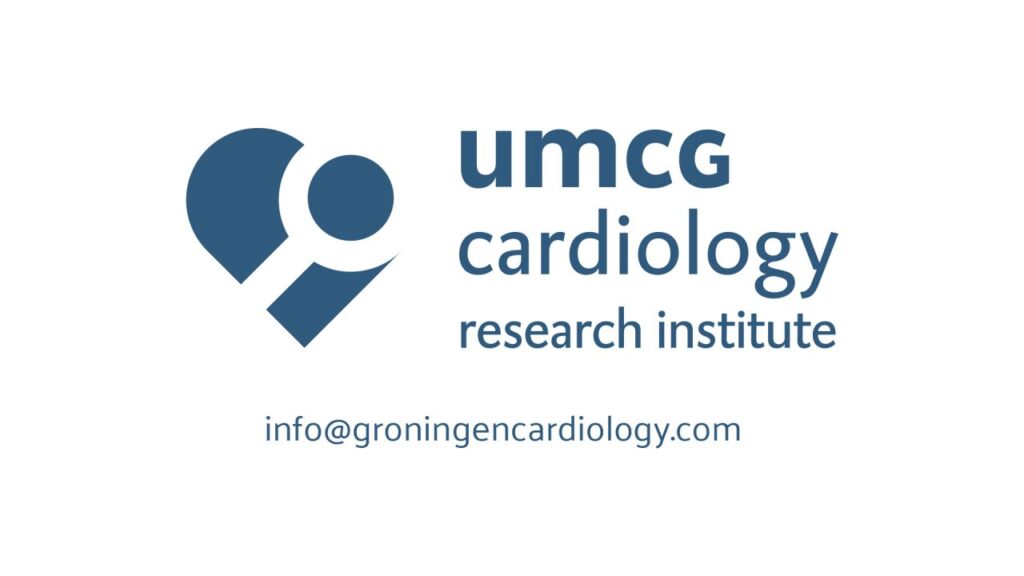G-CURE aims to become a global scientific leader in the development of new (pharmacological) treatments for cardiovascular diseases with a focus on heart failure, preservation of left ventricular function after acute myocardial infarction and atrial fibrillation.
We offer our unique skill sets and combined expertise to pharmaceutical, biotech and related industries, with services ranging from experimental animal studies to the creation of marketing authorisation dossiers.
Born within the Department of Cardiology of one of the most advanced university hospitals in Europe, G-CURE is a modern institute built on strong scientific foundations dating back to the 18th century. The Department of Cardiology has a strong scientific track record with over >1500 scientific publications between 2008-present, including several publications in the New England Journal of Medicine, the Lancet and Nature.
“The combination of theoretical and practical expertise gives us the edge in performing top quality scientific research.”
The G-CURE management team consists of:
Chief Scientific and Executive Officer – Adriaan Voors, MD, PhD, Professor of Cardiology
 Adriaan Voors is Professor of Cardiology and specializes in heart failure. Since July 2003, Professor Voors works as a Cardiologist in the University Medical Centre Groningen, The Netherlands. In 2007, he became Established Clinical Investigator of the Netherlands Heart Foundation, and in May 2010, he became Professor of Cardiology at the University Medical Center Groningen.
Adriaan Voors is Professor of Cardiology and specializes in heart failure. Since July 2003, Professor Voors works as a Cardiologist in the University Medical Centre Groningen, The Netherlands. In 2007, he became Established Clinical Investigator of the Netherlands Heart Foundation, and in May 2010, he became Professor of Cardiology at the University Medical Center Groningen.
Read more about Adriaan Voors.
Chief Operating & Financial Officer – Ruben de Jong, MSc
 Ruben de Jong studied biological and medical laboratorial research in Groningen, medical biology in Amsterdam and obtained his master degree in policy analysis, management and entrepreneurship in 2005. Since January 2018, Ruben has been the Head of Research for the UMCG department of Cardiology and COO of G-Cure BV, where he is responsible for the operational aspects of (pre-)clinical research conducted by the department of Cardiology.
Ruben de Jong studied biological and medical laboratorial research in Groningen, medical biology in Amsterdam and obtained his master degree in policy analysis, management and entrepreneurship in 2005. Since January 2018, Ruben has been the Head of Research for the UMCG department of Cardiology and COO of G-Cure BV, where he is responsible for the operational aspects of (pre-)clinical research conducted by the department of Cardiology.
Chief Executive Officer and Head of experimental cardiology – Peter van der Meer, MD, PhD, Professor of Cardiology
 Professor Peter van der Meer received both his MD and PhD cum laude from the University of Groningen in the Netherlands. He is trained as a cardiologist with a focus on heart failure and cardiac devices. He did a postdoctoral fellowship at Harvard Medical School with prof. Ken Chien to further train his skills in cardiac stem cell biology
Professor Peter van der Meer received both his MD and PhD cum laude from the University of Groningen in the Netherlands. He is trained as a cardiologist with a focus on heart failure and cardiac devices. He did a postdoctoral fellowship at Harvard Medical School with prof. Ken Chien to further train his skills in cardiac stem cell biology
G-CURE maintains a large network of local, national and international specialists in the fields of regulatory affairs, pre-clinical studies, translational medicine, phase I and phase II-III studies, data management and scientific writing. For each project, we assemble a fit-to-purpose team of experts dedicated to making your promising drug a success.
Within the UMCG
Head: D.J. van Veldhuisen, MD, PhD, Professor of Cardiology
The Department of Cardiology conducts scientific research, with a special focus on heart failure, left ventricular remodelling, and atrial fibrillation. Between 2008 and now, the department contributed to more than 1500 scientific publications, including several in the New England Journal of Medicine, the Lancet and Nature. In addition, the Department of Cardiology initiated several studies on novel cardiovascular treatment options. Since 2010, the Department of Cardiology has been running the European Journal of Heart Failure, one of the highest ranked heart failure journals worldwide.
Department of Cardiology
Since 1992, the Department of Cardiology has been operating a dedicated research department – Cardio Research. Cardio Research has performed over 500 clinical trials in cardiology, both sponsored and investigator-initiated trials. Cardio Research employs project managers, research physicians, screening nurses, research nurses and research assistants.
Residents and cardiologists from the Department of Cardiology are actively involved in the execution of individual trials.
Our Project Managers are dedicated to organizing your research program effectively and efficiently, including obtaining approval from the IRB and the Competent Authority. Our research physicians and screening nurses are dedicated to the identification and inclusion of eligible patients.
Our research nurses and assistants have a longstanding experience in the planning, execution and documentation of clinical studies in compliance with GCP.
Cardio Research operates a research outpatient clinic with two examination rooms, a blood collection and processing lab, echocardiography facilities, medication and sample storage with 24-hour temperature monitoring.
The division of Experimental Cardiology conducts cutting-edge experimental and translational research focused on uncovering novel disease pathways and developing new therapies. Various screening methods are used to identify novel targets, ranging from cellular and animal models of myocyte hypertrophy and heart failure to clinical studies including large genome-wide association studies (GWAS). Potential targets are investigated in series of high throughput experiments, and further categorized based on experimental outcomes.
The division investigates promising targets through transgenic models, pharmacological studies, and clinical trials. It includes experts in various experimental techniques. Research spans cell biology, animal models, and genetics, with a focus on heart-related conditions. Collaboration between residents, cardiologists, and researchers strengthens ties between lab and clinic. This bridge accelerates the validation and translation of novel findings into clinical practice.
